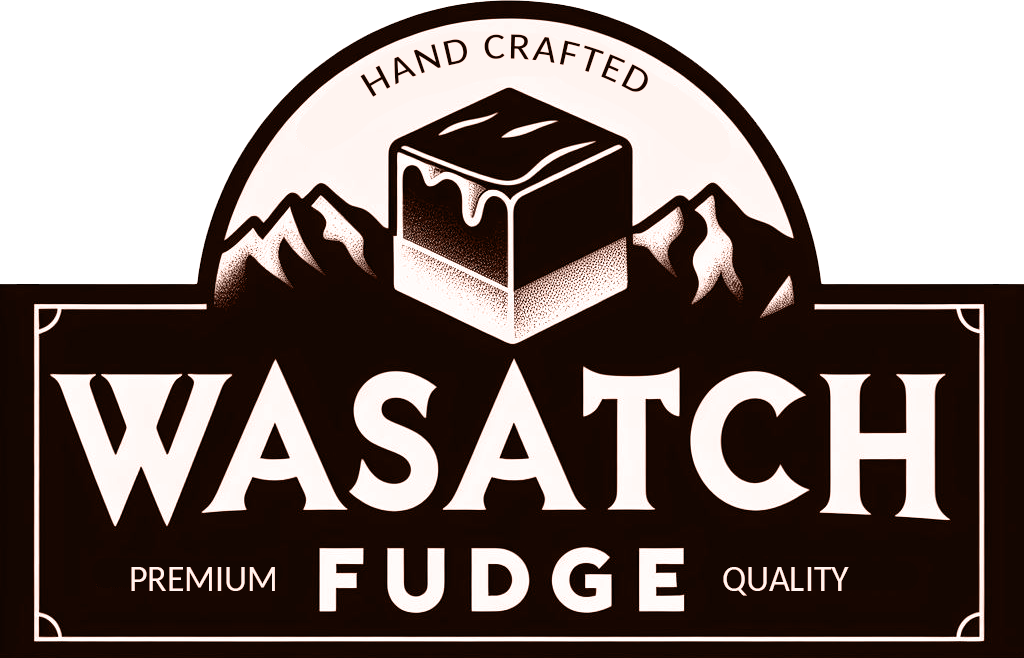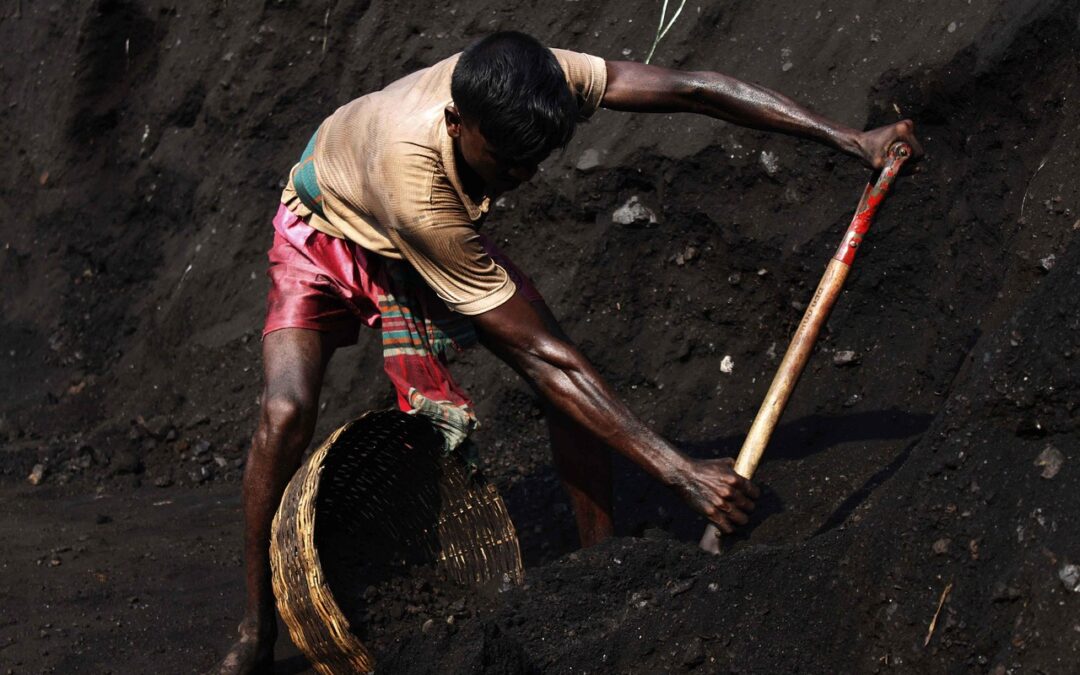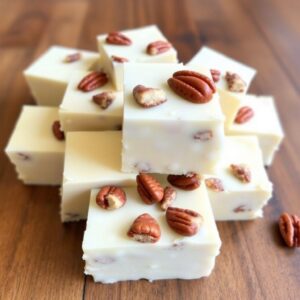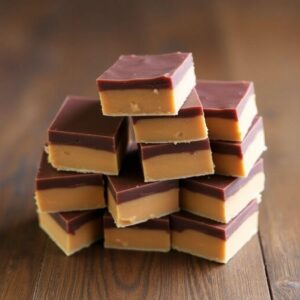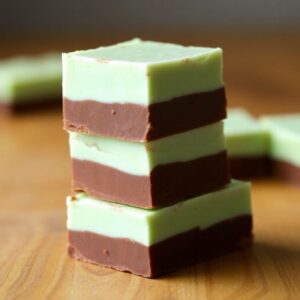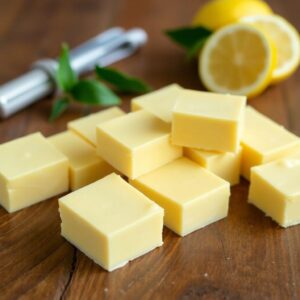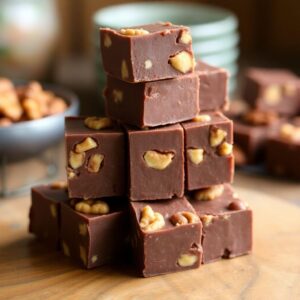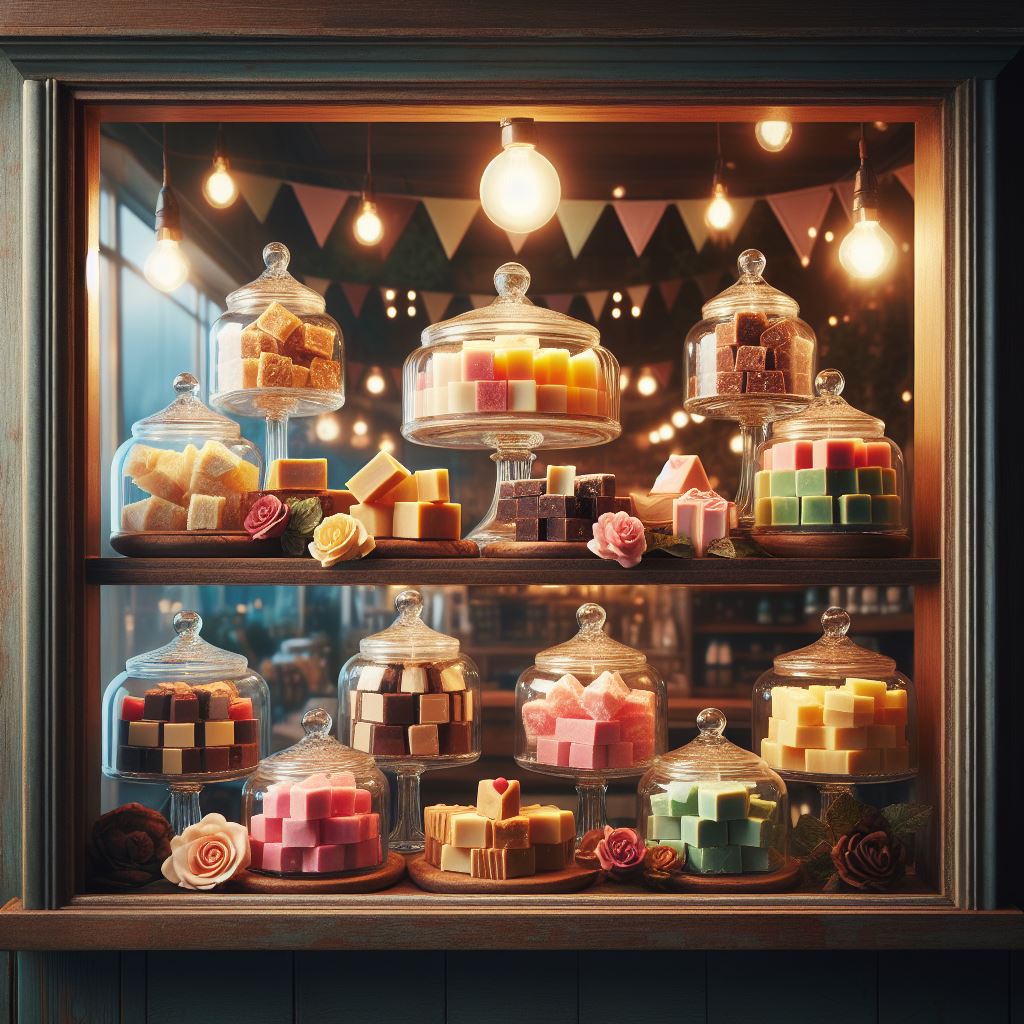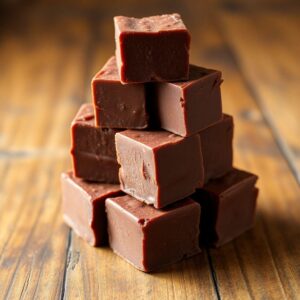Why Riverton for why is fudge so hard to make??
Local Fudge, why is fudge so hard to make?, etc
Okay, here’s a question-based revision of the provided text, aiming to engage the reader and pique their interest:
Instead of stating facts, let’s pose questions:
- What’s the secret to achieving that perfectly smooth, melt-in-your-mouth fudge? Is it all about hitting that “soft-ball stage” temperature range of 234°F to 240°F (112°C to 116°C)?
- Why is that specific temperature so critical? Does it have something to do with water evaporation and sugar concentration?
- Have you ever wondered about the science behind fudge making? What are the key chemical reactions and processes at play?
- What are the most common mistakes that amateur fudge makers make? And how can you avoid them?
- Do you dare to dream of creating fudge that rivals the best fudge shops in Riverton? What tips and tricks can help you achieve fudge nirvana in your own kitchen?
- Did you know that humidity can be a fudge’s worst enemy? How does it affect the sugar concentration, and what adjustments might be needed? Does this turn fudge-making into a weather-dependent experiment?
- Feeling overwhelmed by the prospect of homemade fudge? Have you considered exploring Riverton’s local fudge scene? What unique flavors and creations do they offer?
- How important is it to scrape down the sides of the pot while cooking fudge? What happens if you don’t, and how does it affect the final result?
Riverton Fudge Fails? Cracking the Code to Creamy Perfection!
Ever tried making fudge and ended up with a grainy mess instead of smooth, melt-in-your-mouth goodness? You’re not alone! Making perfect fudge, especially why is fudge so hard to make? in Riverton (or anywhere else, for that matter!), can feel like a kitchen science experiment gone wrong. This article breaks down the science behind fudge, explores common pitfalls, and offers tips for creating delicious fudge right in your own kitchen, maybe even good enough to rival the best local fudge shops in Riverton! We’ll uncover the secrets to controlling sugar crystals, monitoring temperature, and choosing the right ingredients, all to help you achieve fudge nirvana. So, ditch the grainy disappointment and get ready to whip up some seriously amazing fudge.
TL;DR: Fudge-tastic in a Flash!
Fudge seems hard to make because it’s all about controlling sugar crystals. Too big, and you get grainy fudge. Temperature is KEY – use a candy thermometer! Don’t stir while it’s boiling, but beat it like crazy once it cools down a bit. Humidity can also mess things up. For the best local fudge experience, try a Riverton shop. But if you’re brave, keep reading for all the secrets to making perfect fudge at home! We’ll answer why is fudge so hard to make? in Riverton and give you the tools to succeed!
The Sweet Science: Why Fudge is Tricky
So, why is fudge so hard to make? in Riverton and everywhere else? The answer lies in the behavior of sugar. Fudge is essentially crystallized sugar suspended in a fat-rich matrix (usually butter or chocolate). The goal is to create tiny sugar crystals, which give fudge its smooth, creamy texture.
Think of it like building a house. You want lots of small, uniform bricks (sugar crystals) to create a solid, smooth wall (fudge). If you have a few HUGE bricks mixed in, the wall will be lumpy and uneven (grainy fudge).
The process of making fudge involves:
- Dissolving sugar in liquid: This creates a sugar syrup.
- Boiling the syrup: This concentrates the sugar and raises the temperature.
- Cooling the syrup: This is where the magic happens – sugar crystals start to form.
- Beating the syrup: This encourages the formation of small sugar crystals.
If any of these steps go wrong, you’ll end up with grainy, hard, or oily fudge. It’s a delicate balancing act!
Temperature is King (and Queen!)
One of the biggest reasons why is fudge so hard to make? in Riverton (and everywhere!) is getting the temperature right. You absolutely NEED a candy thermometer. Don’t even think about winging it.
- Underboiling: If you don’t boil the syrup to a high enough temperature, there won’t be enough sugar concentration, and the fudge won’t set properly. It will be soft and gooey.
- Overboiling: If you boil the syrup for too long or at too high a temperature, you can create large sugar crystals. This leads to grainy fudge. Overboiling can also burn the sugar, giving your fudge a bitter taste.
The ideal temperature for fudge is typically between 234°F and 240°F (112°C and 116°C), also known as the “soft-ball stage.” This temperature ensures that enough water evaporates to create the right sugar concentration for proper crystallization.
The No-Stir Rule: A Fudge Fundamental
While the syrup is boiling, resist the urge to stir! Stirring introduces sugar crystals prematurely. You want those crystals to form in a controlled way after the syrup has cooled slightly.
Scrape down the sides of the pot occasionally to prevent sugar crystals from forming on the sides and falling back into the syrup. But avoid stirring the actual mixture.
These stray crystals on the sides can act as “seeds” that trigger premature and uncontrolled crystallization, leading to – you guessed it – grainy fudge! Think of it like introducing a troublemaker into a classroom; it can disrupt the whole process.
The Cooling and Beating Ballet
This is where the magic really happens. Once the syrup reaches the correct temperature, take it off the heat and let it cool slightly. The ideal cooling temperature varies depending on the recipe, but generally, you want it to cool to around 110°F (43°C).
Why cool it down? Because beating hot sugar syrup will just create a sugary mess. Cooling allows the sugar molecules to start grouping together, preparing them for the controlled crystallization that comes with beating.
Then, beat the fudge vigorously! This encourages the formation of those tiny, desirable sugar crystals. Beat until the fudge starts to thicken and lose its glossy sheen. It should become dull and lose its shine, looking more like, well, fudge!
Underbeating will result in soft, runny fudge. Overbeating will make it dry and crumbly. It’s a delicate balance, requiring patience and observation.
Humidity: The Unseen Foe of Fudge
Believe it or not, humidity can play a significant role in your fudge-making success. On humid days, there’s more moisture in the air, which can affect the sugar concentration and crystallization process. This is an often-overlooked aspect of why is fudge so hard to make? in Riverton, or anywhere with fluctuating humidity.
High humidity can slow down the evaporation of water during boiling, potentially leading to underboiled syrup and soft fudge. On extremely humid days, consider extending the boiling time slightly to compensate for the extra moisture.
Controlling Humidity’s Impact
Here are a few tips for dealing with humidity when making fudge:
- Choose a dry day: If possible, make fudge on a day with low humidity.
- Extend boiling time: On humid days, add a minute or two to the boiling time.
- Use a lower flame: A lower flame can help prevent scorching while allowing for slower, more even evaporation.
- Trust your thermometer: Rely on your candy thermometer to ensure the syrup reaches the correct temperature, regardless of humidity.
Ingredient Insights: Choosing Your Weapons
The quality of your ingredients can also affect the outcome of your fudge. Fresh, high-quality ingredients will always yield better results.
- Sugar: Use granulated sugar that is fresh and free of lumps.
- Butter: Use real butter, not margarine. Butter adds richness and flavor to the fudge. Salted or unsalted butter is fine, but adjust the salt in the recipe accordingly.
- Chocolate: Use high-quality chocolate. The better the chocolate, the better the fudge.
- Cream: Heavy cream is preferable, as it has a higher fat content, which contributes to a richer, smoother fudge.
- Add-ins: Don’t be afraid to experiment with different add-ins, such as nuts, dried fruits, or extracts.
Troubleshooting Fudge Fails: Decoding Disaster
Even with the best intentions, sometimes fudge goes wrong. Here’s a guide to troubleshooting common fudge fails:
- Grainy fudge: This is usually caused by sugar crystals forming prematurely or growing too large. Avoid stirring while boiling, and make sure to cool the syrup properly before beating. You can sometimes salvage grainy fudge by adding a tablespoon or two of water or milk and reheating it slowly, stirring constantly, until the sugar dissolves. Then, continue with the cooling and beating process.
- Soft, runny fudge: This is often caused by underboiling. The syrup didn’t reach a high enough temperature to concentrate the sugar properly. You can try reheating the fudge to the correct temperature, but be careful not to burn it.
- Hard, crumbly fudge: This can be caused by overboiling or overbeating. Unfortunately, there’s not much you can do to salvage hard, crumbly fudge. It’s best to start over.
- Oily fudge: This can be caused by using too much butter or not incorporating the ingredients properly. Make sure to use the correct amount of butter, and beat the fudge thoroughly.
Riverton’s Fudge Scene: Local Delights
While mastering homemade fudge is rewarding, sometimes you just want to indulge in professionally made local fudge. Riverton might have some hidden gems! A quick search for “local fudge shops in Riverton” or “why is fudge so hard to make? in Riverton solved by the professionals” might lead you to delicious discoveries. Supporting local businesses is a great way to enjoy high-quality fudge without the hassle of making it yourself. Plus, they often have unique flavors and variations that you won’t find anywhere else.
Alternative Recipe: Microwave Fudge
If traditional fudge seems intimidating, there are simpler microwave fudge recipes available. While the texture might not be quite as refined as traditional fudge, it’s a much quicker and easier option. These recipes typically involve melting chocolate, sweetened condensed milk, and butter together in the microwave. It’s a great starting point for those who are hesitant to tackle the more demanding traditional method. These recipes often avoid the delicate dance around crystal formation making it easier to make!
Expansive Summary: From Sweet Science to Riverton Delights
So, why is fudge so hard to make? in Riverton? It’s a question that boils down (pun intended!) to understanding the science of sugar crystallization, mastering temperature control, and mitigating the impact of environmental factors like humidity. The journey from raw ingredients to creamy, melt-in-your-mouth fudge is a delicate dance of precision and patience. From the initial dissolving of sugar in liquid to the critical boiling stage, where a candy thermometer becomes your best friend, every step demands careful attention.
We’ve explored the crucial no-stir rule during boiling, highlighting how premature crystal formation can lead to the dreaded grainy texture. The cooling and beating ballet requires a keen eye and a steady hand, knowing just when to intervene and coax those tiny, desirable sugar crystals into existence. Humidity, the often-overlooked foe, can disrupt the sugar concentration and demand adjustments to the boiling time, turning even a seasoned fudge maker into a weather-dependent scientist.
We’ve also delved into the importance of ingredient quality, emphasizing the role of fresh sugar, real butter, high-quality chocolate, and rich heavy cream in achieving fudge perfection. Troubleshooting common fudge fails, from grainy to runny to oily, equips you with the knowledge to diagnose and potentially salvage your sweet creations.
But the exploration doesn’t end in your kitchen. Riverton’s local fudge scene offers a delightful alternative, showcasing the expertise of local artisans and providing a convenient way to satisfy your fudge cravings without the stress of homemade attempts. Whether you choose to embark on the fudge-making adventure yourself or support local businesses, the pursuit of perfect fudge is a rewarding journey.
Thinking beyond fudge, the principles discussed here have broader applications. The importance of precise temperature control and understanding the impact of environmental factors applies to many culinary endeavors, from making caramel to brewing beer. The concept of controlled crystallization is relevant in various scientific and industrial processes, from pharmaceutical manufacturing to material science. Even in non-scientific fields, the need for precision, patience, and adaptability resonates in endeavors ranging from woodworking to software development. So, while why is fudge so hard to make? in Riverton might seem like a niche question, the answer unlocks a wealth of knowledge applicable to diverse fields and projects.
More on why is fudge so hard to make?…
- Okay, here’s an exhaustive list of SEO keywords, separated by line, related to “why is fudge so hard to make?” and “Local Fudge”:
- Keywords Related to “Why is Fudge So Hard to Make?”:
- why is fudge so hard to make
- fudge making problems
- fudge troubleshooting
- fudge recipe fails
- fudge consistency issues
- fudge not setting
- fudge too grainy
- fudge too soft
- fudge crystallization in fudge
- fudge temperature control
- fudge cooking tips
- fudge humidity problems
- fudge ingredients matter
- perfect fudge recipe
- easy fudge recipe (to compare)
- best fudge recipe (to find flaws in others)
- fudge making mistakes
- fudge science
- fudge chemistry
- fudge texture problems
- fudge tips and tricks
- fudge failure reasons
- what causes grainy fudge
- how to fix grainy fudge
- how to make fudge without grainy texture
- prevent fudge from crystallizing
- fudge setting correctly
- fudge cooking time
- fudge cooking temperature
- fudge recipe instructions
- fudge recipe troubleshooting
- making fudge at home difficult
- easy fudge recipe for beginners
- advanced fudge making techniques
- fudge expert advice
- fudge professional tips
- fudge for dummies
- fudge recipe hints
- why did my fudge not set up
- why is my fudge grainy
- what makes fudge hard to make
- fudge difficult recipe
- fudge making tips and tricks
- Keywords Related to “Local Fudge”:
- local fudge
- fudge near me
- fudge shop near me
- best fudge near me
- homemade fudge near me
- where to buy fudge locally
- fudge store near me
- fudge delivery near me
- fudge online local
- local fudge maker
- fudge gift near me
- fudge company near me
- fudge business near me
- fudge for sale near me
- fudge shops in [city/state] (Replace with actual location)
- best fudge in [city/state] (Replace with actual location)
- local gourmet fudge
- artisan fudge near me
- small batch fudge near me
- fresh fudge near me
- fudge flavors near me
- fudge sampler near me
- fudge catering near me
- local candy store with fudge
- local chocolate shop with fudge
- fudge gift baskets near me
- buy local fudge online
- supporting local fudge businesses
- fudge events near me
- local fudge festivals
- locally sourced fudge
- fudge fundraiser local
- local fudge fundraising
- fudge shop open now near me
- Combined Keywords (Bridging Both Themes):
- local fudge making class
- fudge making class near me
- fudge cooking class local
- easy fudge recipe local ingredients
- best fudge recipe local shops
- fudge ingredients near me
- local sugar for fudge
- buy local ingredients for fudge
- fudge troubleshoot local experts
- fudge making help near me
- local fudge recipe contest
- fudge taste test local
- fudge making workshops near me
- local fudge recipe swaps
- This list is designed to be comprehensive and should give you a good starting point for your SEO efforts. Remember to use these keywords naturally within your content. Good luck!
